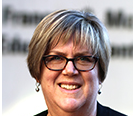You can impact student success simply by the way you speak in the classroom! Instructor Talk is a term coined by researchers who looked at the impact non-content related language had on student success. Non-content language is the little things we say to students during a class session that foster a positive learning environment. Just by switching up how we talk to students can impact their perceptions. For example, switching from, “I have extended the deadline for the project” to “I have extended the deadline for the project to give you additional time” or from “We will begin today discussing . . .” to “To get you prepared, we will begin today discussing . . .” can help.
Specifically, instructor talk can:
Promote student-centered learning by breaking down student resistance to learner-centered environments
Break down stereotype threat by incorporating verbal cues that promote safety and equity
Increase instructor immediacy by decreasing the emotional and social gap between students and faculty
For more information, check out the article by Seidel, et al, Beyond the Biology: A systematic Investigation of Noncontent Instructor Talk in an Introductory Biology Course.
While content is always a priority, in what ways can you incorporate instructor talk into your courses? Share your ideas on Twitter at #MedEdPearls.
#MedEdPearls are developed monthly by the Central Group on Educational Affairs. Previously, #MedEdPearls explored topics including peer observation, frame-based feedback, and converting teaching into scholarship. Thank you for reading and enjoy the Pearls!
Author
Jean M. Bailey, Ph.D. is a medical education faculty developer. Jean currently holds a position as Assistant Professor and Assistant Dean for Faculty Development at the Virginia Commonwealth University School of Medicine. Jean’s areas of professional interest include teaching and learning, faculty roles, and wellness/resilience. Jean can be followed on Twitter or contacted via email at jean.bailey@vcuhealth.org.
#MedEdPearls

Jean Bailey, PhD – Virginia Commonwealth University School of Medicine
Rachel Moquin, EdD, MA – Washington University School of Medicine


